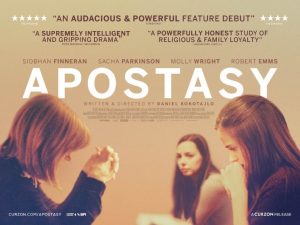Apostasy and University
Blog post by Ellen Johnson (MA Applied Human Rights)
Bradford born Zayn Malik, well known as a solo performer and previously as a member of One Direction, has said he no longer identifies as Muslim in a recent interview.
 Many have stated on social media that they will no longer follow or support his music, criticising him for speaking about this publicly. His bravery in speaking out has been been praised, Humanists UK President Shappi Khorsandi stated that “it shouldn’t be considered brave to leave Islam, but for many it really is.” In the interview Zayn talks about his family’s acceptance of his beliefs, however many young people leaving the religion that they were raised in do not have such a positive experience.
Many have stated on social media that they will no longer follow or support his music, criticising him for speaking about this publicly. His bravery in speaking out has been been praised, Humanists UK President Shappi Khorsandi stated that “it shouldn’t be considered brave to leave Islam, but for many it really is.” In the interview Zayn talks about his family’s acceptance of his beliefs, however many young people leaving the religion that they were raised in do not have such a positive experience.
People who leave a religious group face a huge struggle, thousands of young people have been brought up in religious traditions where ‘coming out’ as not believing can lead to threats, shunning, psychological abuse, discrimination and physical harm.
Deciding to leave a religion can often mean rejection from your family and community, with little understanding of where to turn next. ‘Apostates’ as these people are sometimes called, may end up homeless, isolated, and at risk of profound mental health issues.
Apostasy has not been comprehensively studied and statistics on the experiences of people leaving religion are hard to find. A survey commissioned by apostasy support group Faith to Faithless showed that that nearly half experience significant mental health issues, and that two thirds experience physical harm or threats.
Many issues associated with leaving religion are common to people of different faith backgrounds, the film ‘Apostasy’ realeased this year tells the story of a family of Jehovah’s Witnesses, and the consequences they face as the eldest daughter leaves the faith after starting college.
Director Daniel Kokotajlo, himself an ex-Jehovah’s Witness talks about starting University and the effects this had on him’ “Growing up as a teenager and eventually going to art college – that was when I started to really think differently about things.”
People leaving home and attending University, may have, for the first time, an opportunity to explore the questions about faith, or to live in in a more authentic way in line with their beliefs. In reading and listening to the testimony of apostates, a recurring theme is that University was a critical time in terms of leaving their faith.
Importance of family for students
Prof Jacqueline Stevenson of the Sheffield Institute for Education has written about the importance of family support in supporting student achievement, and the “critical influence families have on a student’s experience of higher education, through either their presence or absence.” Apostates may face a difficult choice; to either hide their beliefs from family for fear of reprisal; or losing family support through shunning and rejection as a consequence of ‘coming out’. For students questioning their faith these issues could significantly impact their studies and should be considered in any policies developed to address family disadvantage.
Speaking at the NUS conference in March this year, Faith to Faithless founder Imtiaz Shams and Humanist Students President Hannah Timson talk about how going to university can be a transformative and challenging time for those questioning faith. When Faith to Faithless asked apostates what support they needed, a key message was that they want public services to understand and be able to respond to their needs. It is therefore critical that Universities are aware of the issues faced by apostates and are able to support them.
Faith to Faithless will be delivering their apostasy awareness training to key stakeholders at Sheffield Hallam as part of the ‘Standing Together Against Hate’ project. The training event will be held on Tuesday 5th February 2019, and places can be booked via Eventbrite here.
Any student apostates looking for supportive community and events can contact the Humanist Students society, or access pastoral support from the humanist advisor via the Multi-faith Centre by emailing chaplaincy@shu.ac.uk


